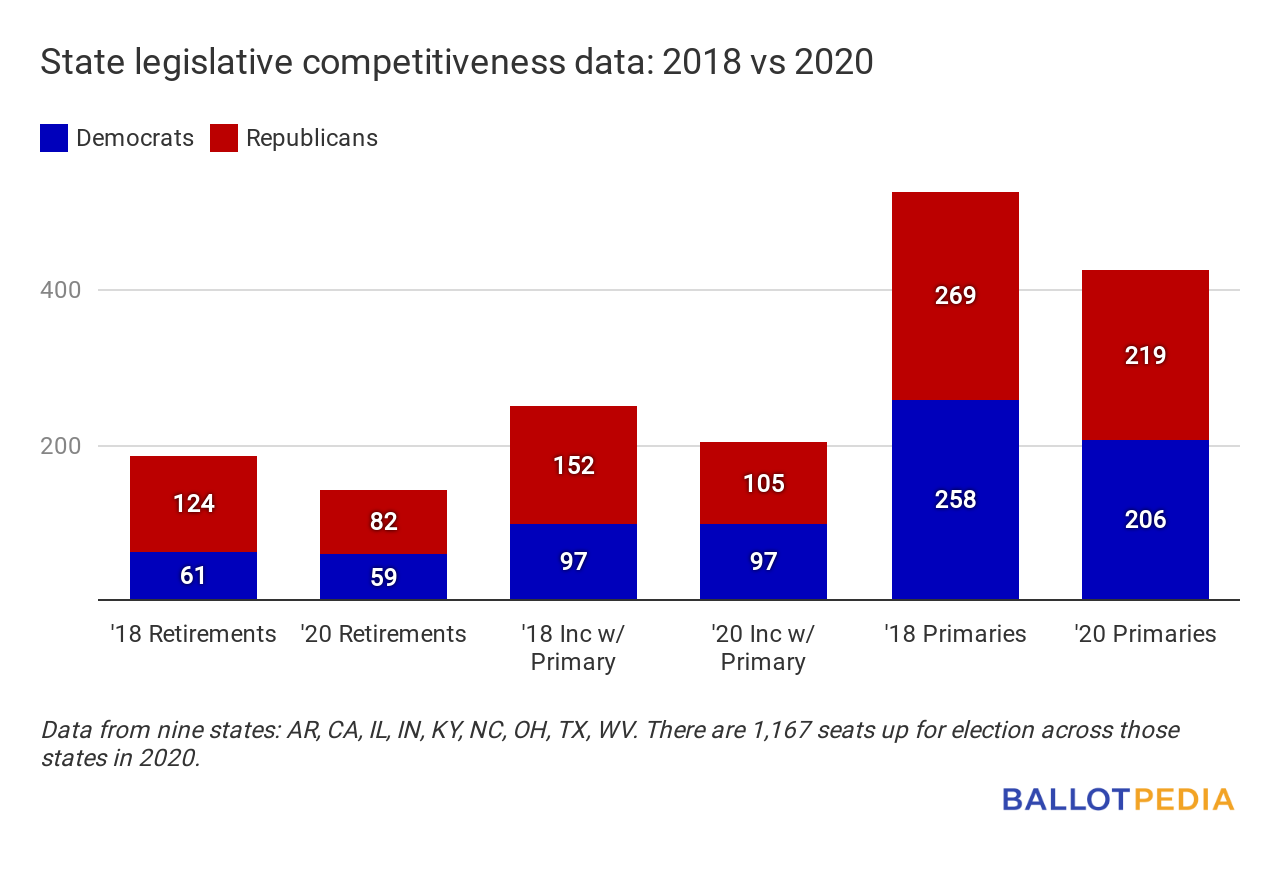 Based on filing data in nine states, 2020’s state legislative elections are so far less competitive than 2018’s elections in three categories: open seats, incumbents with primary challengers, and total primaries. Those nine states are Arkansas, California, Illinois, Indiana, Kentucky, North Carolina, Ohio, Texas, and West Virginia.
Based on filing data in nine states, 2020’s state legislative elections are so far less competitive than 2018’s elections in three categories: open seats, incumbents with primary challengers, and total primaries. Those nine states are Arkansas, California, Illinois, Indiana, Kentucky, North Carolina, Ohio, Texas, and West Virginia.
Across those states in 2020, there are 1,167 state legislative seats up for election. In 2018, there were 1,187 seats up for election. Most of the drop can be attributed to the Illinois Senate, where one-third of all of seats (20) are up for election in 2020 after two-thirds of all seats (39) were up for election in 2018.
Fewer incumbents are retiring in 2020 than in 2018. In these states in 2018, 185 incumbents—61 Democrats and 124 Republicans—did not run for re-election. This year, 41 incumbents—59 Democrats and 82 Republicans—are not running for re-election. The biggest decrease came in the Ohio House, where 18 incumbents did not file to run for re-election this year after 32 incumbents retired in 2018. Twelve of the 18 representatives not running this year are term-limited, while 20 of the 32 in 2018 were term-limited.
Fewer incumbents are facing primary challengers in 2020. In these states in 2018, 258 incumbents—97 Democrats and 152 Republicans—faced at least one challenger in a primary election. This year, 202 incumbents—97 Democrats and 105 Republicans—face at least one primary challenger. The biggest decrease came in the Texas House, where 30 incumbents had primary challengers in 2020 after 43 had primary challengers in 2018.
In fact, there are fewer total contested primaries in these states in 2020. In 2018, there were 527 total primaries—258 Democratic and 269 Republican. In 2020, there are 425 total primaries—206 Democratic and 219 Republican. Both the California Assembly and Ohio House saw the biggest decrease in total primaries, with 21 fewer this year than in 2020.
Eighty-six of the country’s 99 state legislative chambers are holding legislative elections in 2020. There is a Republican majority in 61 chambers, a Democratic majority in 37 chambers, and a power-sharing agreement between the parties as part of a coalition in the Alaska House of Representatives.
As a result of the 2018 elections, Democrats gained majorities in five chambers and a power-sharing agreement in the Alaska House. In 2019, Democrats won majorities in the Virginia Senate and Virginia House.

